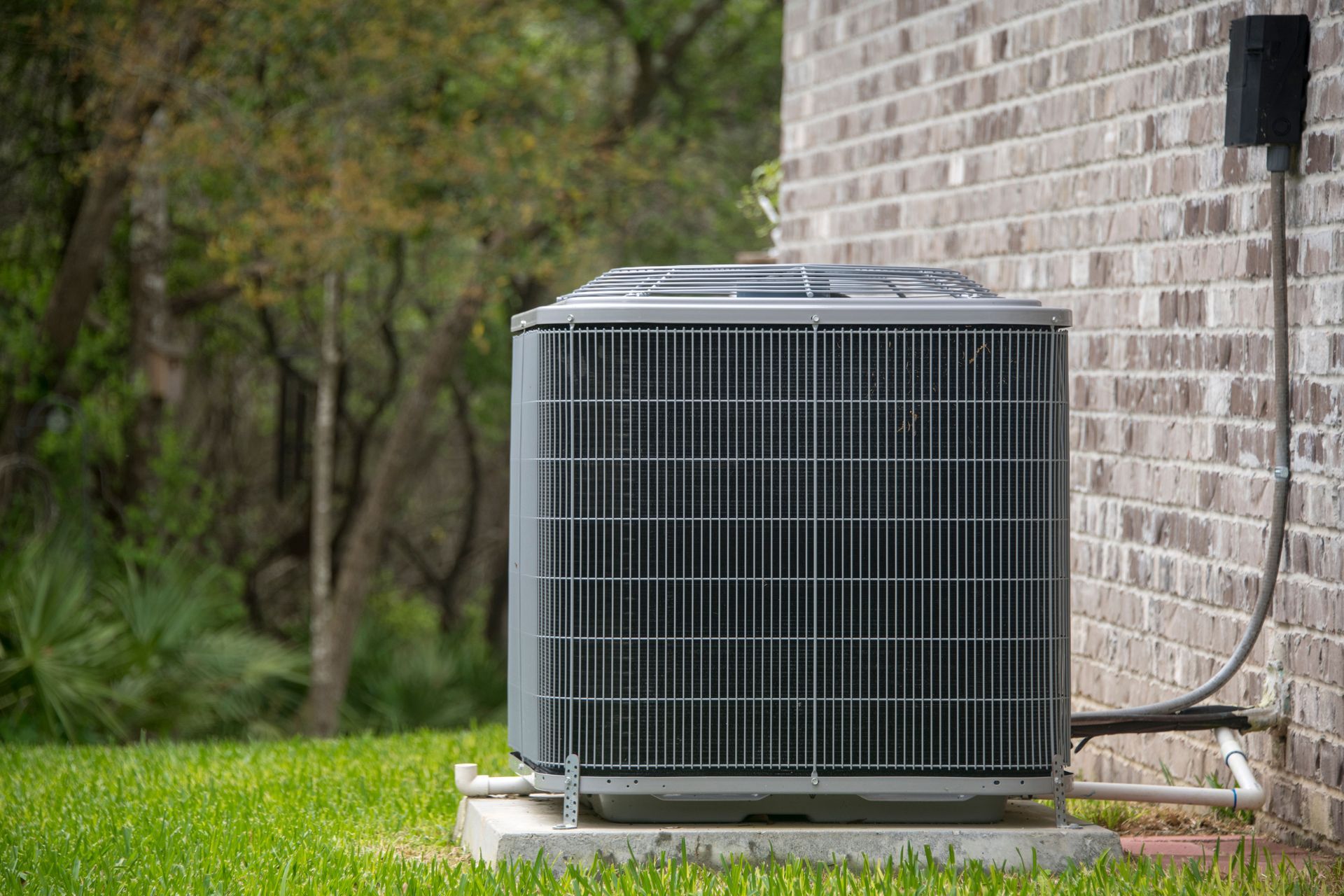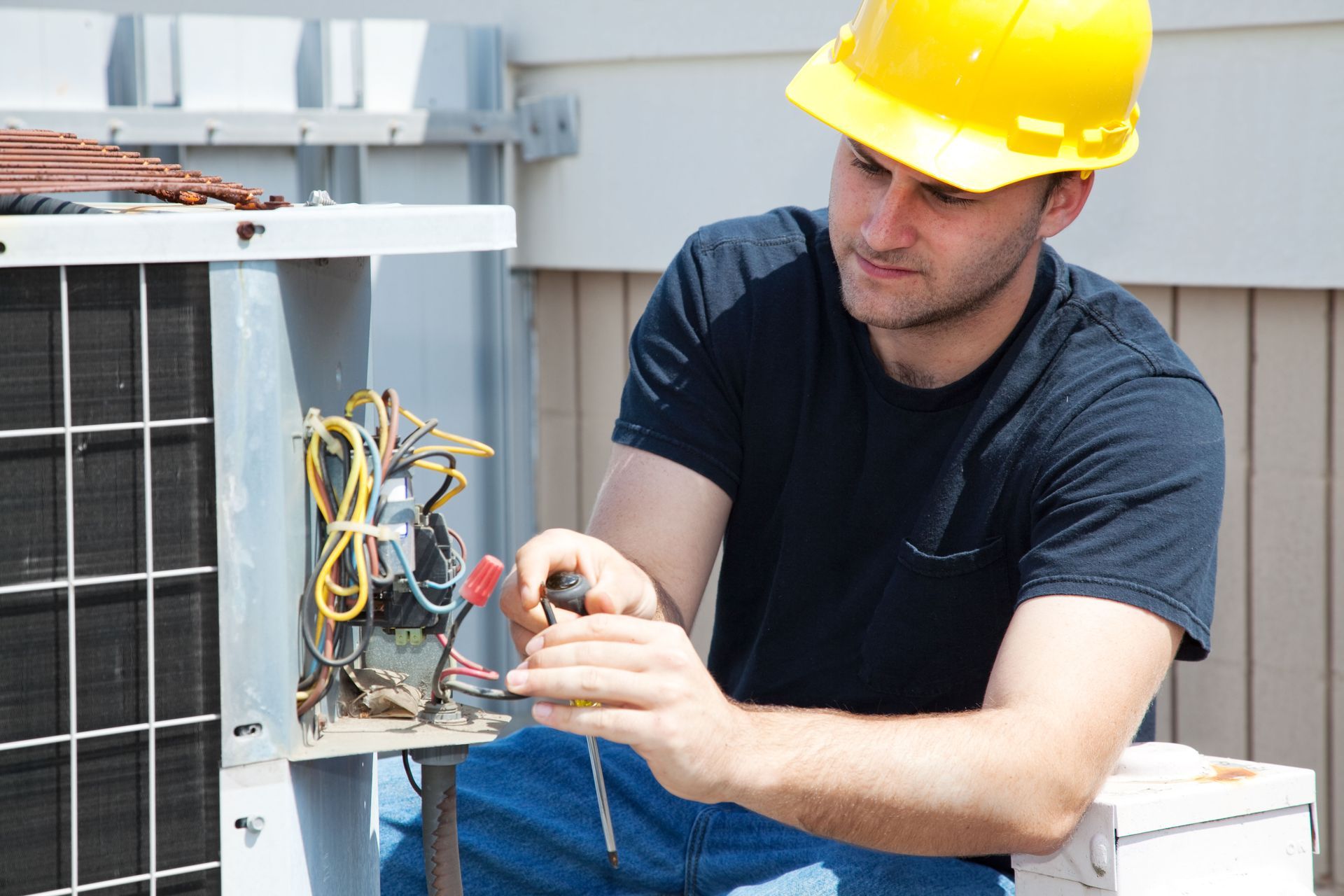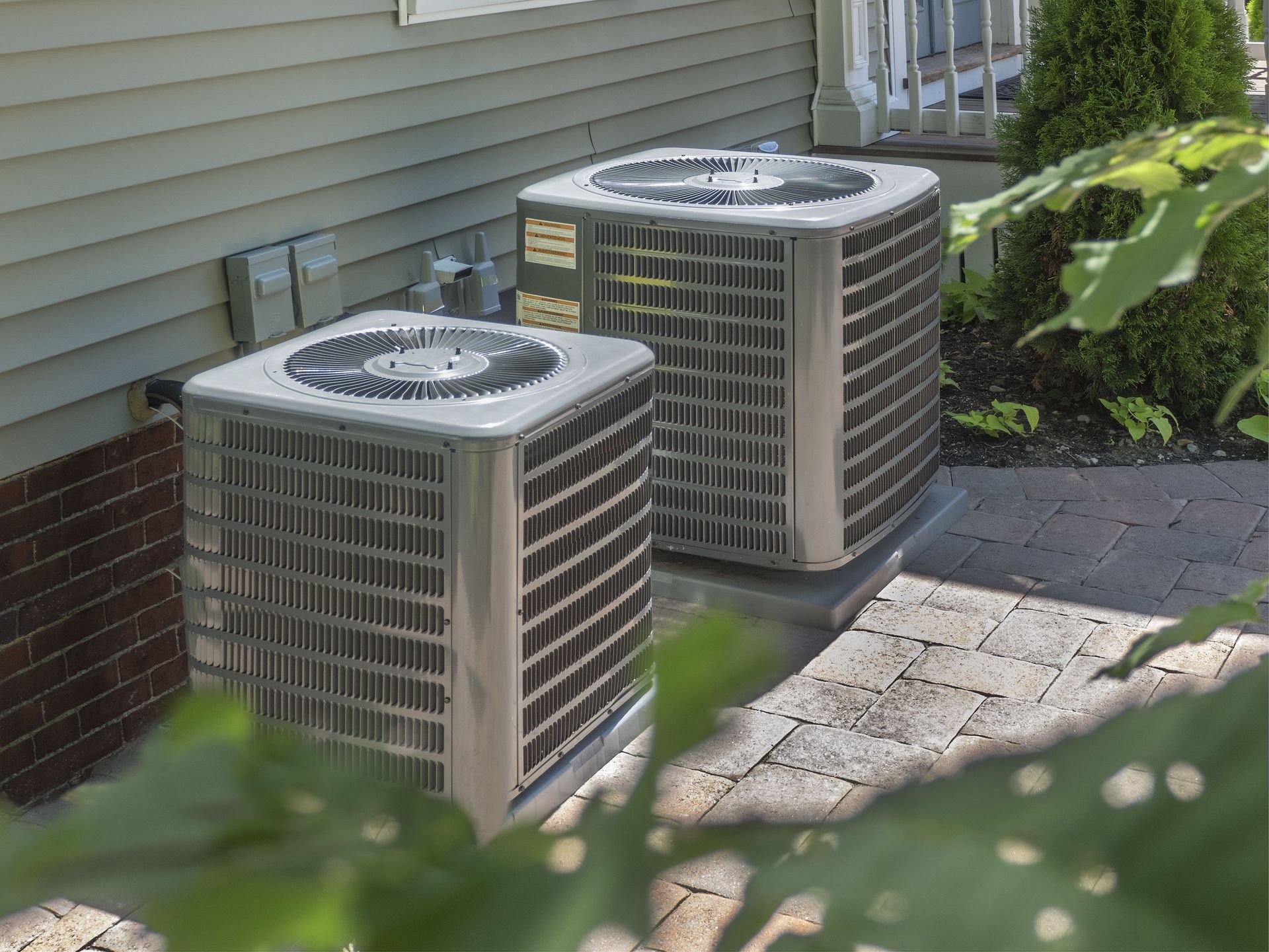AC Not Cooling? Here’s What Might Be Wrong
Understanding the root causes of AC cooling problems can lead to quicker and more effective solutions. Not only can this knowledge save time and discomfort, but it can also prevent costly air conditioning repair when issues become more severe. With regular maintenance and proper care, your AC system can function efficiently and effectively throughout its lifespan.
Thermostat Issues
A thermostat that provides faulty readings can lead to significant cooling issues. Often, these inaccuracies arise from incorrect calibration or outdated thermostats, leading to a misjudgment of the indoor climate. As a result, your AC system may not function at its full potential, causing rooms to feel too warm or too cold. Regular inspection of your thermostat for errors in temperature readings is critical in ensuring it operates at an optimal level. If necessary, calibrating the thermostat or replacing it can help improve accuracy and efficiency.
Thermostat settings play a crucial role in how well your air conditioning system cools the space. Many times, homeowners might overlook the importance of choosing the correct mode and fan speed, leading to decreased performance. Setting the AC to a high temperature or failing to set the system to cooling mode can reduce comfort levels significantly. Moreover, ensuring the fan speed is correctly adjusted can help distribute air more effectively across rooms. Revisiting and adjusting thermostat settings based on the season and personal comfort can optimize its cooling capabilities.
When dealing with non-functional thermostats, it's essential to recognize the symptoms early on. Typically, a broken thermostat can lead to an unresponsive AC system, with rooms either failing to reach desired temperatures or remaining uncooled altogether. If the display is blank or unresponsive and there is no change when settings are adjusted, it might be time to replace the unit.
The placement of a thermostat can significantly influence its performance and the overall efficiency of your air conditioning system. Locating a thermostat in direct sunlight, near heat-producing appliances, or in drafty areas can result in inaccurate temperature readings. These misleading readings then cause the AC system to overwork, leading to uneven cooling and increased energy consumption. Evaluating your thermostat's location and moving it to a more central and sheltered position can enhance its accuracy and system performance. This change could result in more balanced cooling throughout your living spaces and more manageable energy bills.
Refrigerant Leaks
Refrigerant is essential for an AC system to effectively cool the air, and leaks can reduce cooling efficiency dramatically. Common signs of low refrigerant levels include ice formation on coils, hissing noises near the AC unit, and longer cooling cycles. These symptoms indicate that the refrigerant is not adequately circulating, compromising the system's ability to absorb heat from your home. Early detection of low refrigerant levels can help prevent further damage and maintain efficient cooling. Addressing refrigerant issues promptly is crucial to sustaining a comfortable indoor environment.
Refrigerant leaks commonly occur in various parts of the AC system, including valves, connections, and coils. Corrosion and wear over time can create weak points or openings, allowing refrigerant to escape. Identifying these leak-prone areas can help in early diagnosis and air conditioning repair. Regular maintenance checks, focusing on these critical components, can significantly reduce the likelihood of persistent leaks. Early intervention not only safeguards against cooling losses but also helps avoid a more expensive air conditioning repair down the line.
Implementing regular maintenance routines can significantly help prevent refrigerant leaks in AC systems. By catching small issues before they evolve into major problems, you save both time and money on any potential air conditioning repair. Over time, regular maintenance enhances your system's lifespan, reduces cooling costs, and ensures its continuous efficiency. According to HomeGuide, air conditioners that receive consistent upkeep can operate effectively for 12 to 15 years. A well-maintained AC system is less likely to encounter issues requiring expensive professional interventions.
Dirty or Blocked Air Filters
Air filters play a pivotal role in ensuring an AC system operates efficiently, as they keep the airflow free of dust and debris. When these filters become clogged, they restrict the airflow, leading to significantly reduced cooling efficiency and potential system overheating. As a result, the AC unit must work harder, consuming more energy to cool the environment effectively. Regular inspection and timely replacement of filters can help prevent these issues from arising. Ensuring that air filters are clean optimizes air quality, cooling performance, and ultimately energy consumption.
Checking and replacing air filters is a straightforward task that yields considerable advantages in AC performance and efficiency. Begin by turning off the AC unit before checking your filter; this ensures safety and prevents debris from circulating when replacing the filter. Observe the filter's condition—if dust and dirt obscure the filter, it needs to be replaced. For most residential air filters, replacement is recommended every one to three months, but this can vary based on usage and environmental factors. Consistently replacing filters extends the life of your AC system and enhances its functional efficiency.
Incorporating regular maintenance tips can ensure that your AC system remains efficient and reliable over time. Establishing a consistent schedule for cleaning and replacing air filters can prevent clogging and airflow restrictions. Utilizing reminders or setting up a routine inspection of all AC components can catch potential issues early. Additionally, periodic professional maintenance can provide more comprehensive checks and adjustments to ensure system health and functionality. By adhering to these practices, you're effectively prolonging your AC's lifespan and enhancing its cooling performance, and reducing the risk of needing unexpected air conditioning repair.
Dirty or Blocked Condenser Coils
Condenser coils are vital components in the AC system's ability to cool the air efficiently. These coils dissipate heat absorbed from inside the home to the outside through the evaporator coil, maintaining a cooler indoor environment. When the coils become dirty or blocked, their ability to transfer heat diminishes, causing cooling inefficiencies. Understanding the critical role of condenser coils highlights the importance of regular cleaning and maintenance to ensure optimal system performance. Neglecting this step may eventually require professional air conditioning repair. Ensuring these coils remain clean can significantly enhance the overall cooling capabilities of your AC system.
Recognizing the signs of dirty condenser coils is essential for maintaining an efficient AC system. One common indicator is a noticeable decline in cooling performance, as the dirt obstructs heat transfer and places strain on the system. Another visible clue is frost accumulation on coils, which results from uneven heat absorption due to the dirt layer. Additionally, an increase in energy bills may arise since the system works harder to reach desired temperatures. Monitoring these signs can prompt timely cleaning interventions and prevent more severe system damage over time.
Implementing long-term maintenance strategies for keeping condenser coils clean is key to sustaining your AC system’s efficiency. Regular inspection schedules coupled with annual professional servicing can prevent dirt and debris buildup that hinders coil performance. Environmental factors such as plant growth around outdoor units should be controlled by maintaining clearances for proper airflow. By following these strategies, homeowners can ensure their AC systems remain efficient and reliable over extended periods.
Addressing the root causes of AC cooling problems—such as faulty thermostats, refrigerant leaks, clogged air filters, and dirty condenser coils—can significantly improve your system’s efficiency and reliability. Regular maintenance and timely air conditioning repair not only enhance performance but also help reduce energy costs and prevent more expensive breakdowns in the future. A proactive approach ensures consistent comfort throughout your home, no matter the season. Don’t let small issues turn into major headaches. Rely on the professionals to keep your system running smoothly. Contact Comfort Experts today for excellent service, dependable solutions, and lasting comfort you can count on.





Share On: